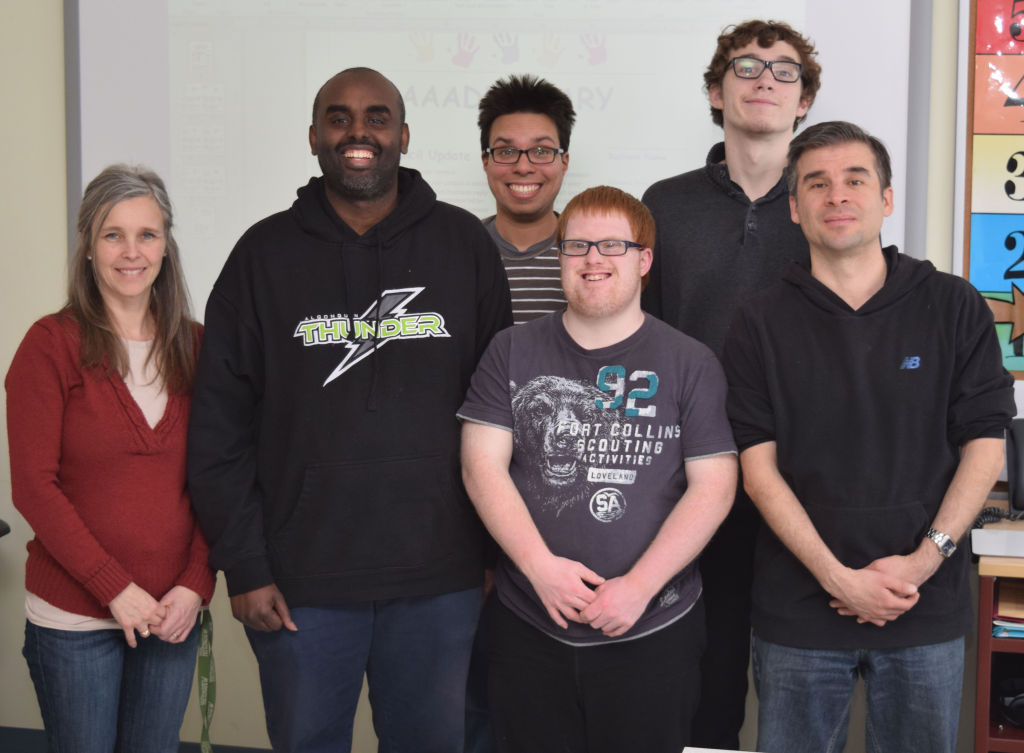
Like any other program at Algonquin, students in the A-building who are part of the Academic Assistance for Adults with Developmental Disabilities program have to have attended high school and be older than 19. Most are young adults in their 20s, but the AAADD has had students as old as 65.
AAADD is an environment designed for students who have a developmental disability so they can further their education in a college setting.
The core courses offered are math and English, and students get to choose two classes between life skills, job search, computers or current events.
Coordinators and adult developmental counsellors work with the students and the material corresponding with their individual learning needs.
Students have the opportunity to form part of a student council, write an internal newsletter through their current events and English classes. AAADD students also participate in recreational activities led by students from the Recreation and Leisure Services program.
“Students learn to be treated like adults and to take responsibility. That helps build confidence and self-esteem,” said Louise St-Amour, who is the coordinator of AAADD. “It helps open doors for the future.”
This program is unique in Ontario, since no other colleges have this model of special education.
“We need more programs like this,” said St-Amour. “Many people think that adults with a delayed development don’t have the chance to go to college and be treated like everybody else.”
There is a need in our society to continue education for adults with developmental delays, and doing it at a college helps bridge gaps and de-stigmatize disabilities.


